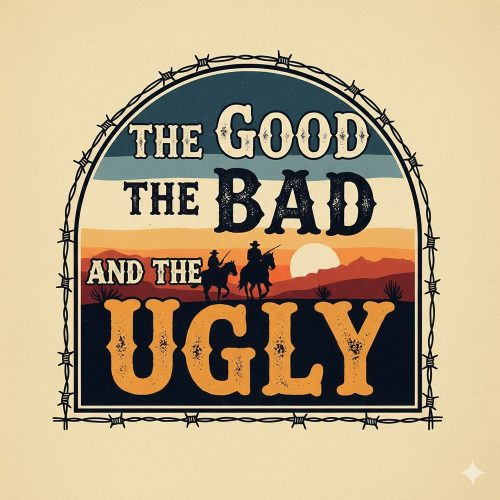How does lobbying affect drug pricing negotiations in the NHS and across European health systems?

Lobbying profoundly affects drug pricing negotiations in the NHS and across European health systems by influencing key policy areas, shaping regulatory frameworks, and directly engaging in negotiation processes.
The industry's influence extends far beyond simple persuasion, impacting everything from intellectual property rules and data exclusivity to the very structure of the price-setting bodies.
NHS Drug Pricing and the Voluntary Scheme
In the UK, the primary mechanism for controlling the price of branded medicines is the Voluntary Scheme for Branded Medicines Pricing, Access, and Growth (VPAG), formerly known as VPAS. This is a five-year agreement negotiated directly between the Department of Health and Social Care, NHS England, and the Association of the British Pharmaceutical Industry (ABPI).
-
Lobbying in Negotiation: The VPAG is a direct result of pharmaceutical lobbying. Instead of the government unilaterally imposing price caps, the industry engages in a formal negotiation process to establish a framework that is acceptable to both parties. This allows the industry to advocate for a "voluntary" scheme that it sees as more predictable and stable than a statutory, government-imposed one.
-
The "Clawback" Mechanism: A key feature of the scheme is the revenue clawback, where companies pay a percentage of their revenue from branded medicines back to the government if the NHS's total spending on those medicines exceeds an agreed-upon growth cap. The level of this clawback is a major point of contention and a direct focus of lobbying. The industry consistently argues for a lower rate, claiming that high payment rates undermine investment in the UK and make the market unattractive for new drugs.
-
Lobbying for Exemptions: Pharmaceutical companies also lobby for specific exemptions from the clawback, particularly for newly launched medicines. They argue that excluding innovative, high-cost drugs from the payment mechanism incentivizes them to launch their products in the UK first. This "carrot-and-stick" approach shows how lobbying shapes the very rules of the game.
Influence on Health Technology Assessment (HTA)
In both the UK and the EU, a crucial gatekeeper for drug access and pricing is the HTA body, such as the UK's National Institute for Health and Care Excellence (NICE).
-
"Soft" Lobbying: The pharmaceutical industry heavily lobbies these bodies. This isn't always direct lobbying; it's often a more subtle and powerful form of influence. This can include:
-
Funding Patient Groups: Pharmaceutical companies systematically fund patient advocacy groups that then make submissions to NICE, arguing for the approval of a company's drug. These groups provide a powerful "patient voice" that can sway decisions, even though their financial ties to the manufacturer are often substantial.
-
Providing Expertise: The industry argues it provides essential clinical and economic data to HTA bodies. While this is true, it also allows companies to frame the evidence in a way that maximizes the perceived value and cost-effectiveness of their products.
-
-
Challenging Cost-Effectiveness Models: The industry consistently lobbies to change or challenge the methodologies used by HTA bodies to assess cost-effectiveness. For example, they may argue that a drug's long-term, hard-to-quantify benefits, like improved quality of life, are not adequately captured by a standard measure like the Quality-Adjusted Life Year (QALY). This is a direct lobbying effort to justify a higher price point.
EU-Wide Influence and Trade Agreements
Beyond national systems, pharmaceutical lobbying has a significant impact on EU-level policy, which in turn affects pricing across all member states.
-
Pushing for Stronger IP Rights: A primary focus of EU-level lobbying is the protection and extension of intellectual property rights, particularly data exclusivity and patents. The industry argues that robust IP protections are essential for innovation. They fiercely opposed the proposed temporary waiver of intellectual property rights for COVID-19 vaccines, a lobbying campaign that was successful in keeping the EU and UK from supporting the waiver at the WTO. This has direct consequences for drug pricing by allowing companies to maintain a monopoly for a longer period, free from generic competition.
-
Lobbying Against "Most-Favored-Nation" Clauses: The industry actively lobbies against policies that would link drug prices across different countries. They fear a "waterbed effect," where a low price negotiated in one country would push down prices in others. This lobbying is particularly intense in the context of international trade agreements, where the US has sometimes pushed for provisions that would effectively tie its drug prices to lower European prices, a move the pharmaceutical industry has vociferously opposed.
The Justification from the Industry
Pharmaceutical companies justify their lobbying by arguing that it is essential for the long-term health of the industry and for patient access to innovative medicines. They frame their activities not as a way to maximize profits, but as a way to ensure a stable business environment that allows them to invest in the risky, expensive process of R&D. Without a reasonable return on investment, they argue, future drug development will dry up, ultimately harming patients.
In conclusion, lobbying affects drug pricing negotiations in Europe and the UK by directly influencing national schemes like the UK's VPAG, shaping the methodologies of HTA bodies like NICE, and driving EU-wide policy on patents and data exclusivity. This influence creates a complex environment where governments, under pressure to provide affordable healthcare, are constantly negotiating with a powerful industry that seeks to maximize the value of its products.
- Questions and Answers
- Opinion
- Motivational and Inspiring Story
- Technology
- Live and Let live
- Focus
- Geopolitics
- Military-Arms/Equipment
- Segurança
- Economy
- Beasts of Nations
- Machine Tools-The “Mother Industry”
- Art
- Causes
- Crafts
- Dance
- Drinks
- Film/Movie
- Fitness
- Food
- Jogos
- Gardening
- Health
- Início
- Literature
- Music
- Networking
- Outro
- Party
- Religion
- Shopping
- Sports
- Theater
- Health and Wellness
- News
- Culture

